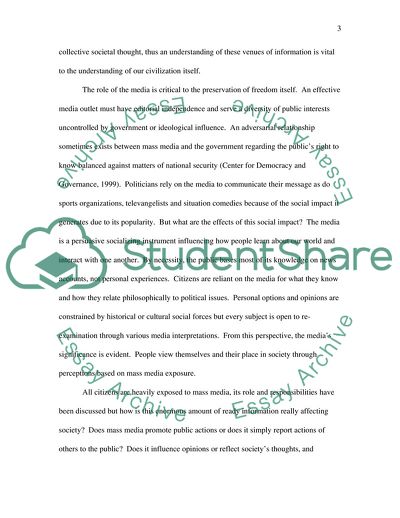Cite this document
(Why Source/Media Relations are Considered Central to Understanding of Essay, n.d.)
Why Source/Media Relations are Considered Central to Understanding of Essay. Retrieved from https://studentshare.org/media/1708076-with-reference-to-the-media-reporting-of-the-following-explain-why-sourcemedia-relations-are-considered-central-to-our-understanding-of-the-role-of-the-media
Why Source/Media Relations are Considered Central to Understanding of Essay. Retrieved from https://studentshare.org/media/1708076-with-reference-to-the-media-reporting-of-the-following-explain-why-sourcemedia-relations-are-considered-central-to-our-understanding-of-the-role-of-the-media
(Why Source/Media Relations Are Considered Central to Understanding of Essay)
Why Source/Media Relations Are Considered Central to Understanding of Essay. https://studentshare.org/media/1708076-with-reference-to-the-media-reporting-of-the-following-explain-why-sourcemedia-relations-are-considered-central-to-our-understanding-of-the-role-of-the-media.
Why Source/Media Relations Are Considered Central to Understanding of Essay. https://studentshare.org/media/1708076-with-reference-to-the-media-reporting-of-the-following-explain-why-sourcemedia-relations-are-considered-central-to-our-understanding-of-the-role-of-the-media.
“Why Source/Media Relations Are Considered Central to Understanding of Essay”, n.d. https://studentshare.org/media/1708076-with-reference-to-the-media-reporting-of-the-following-explain-why-sourcemedia-relations-are-considered-central-to-our-understanding-of-the-role-of-the-media.


